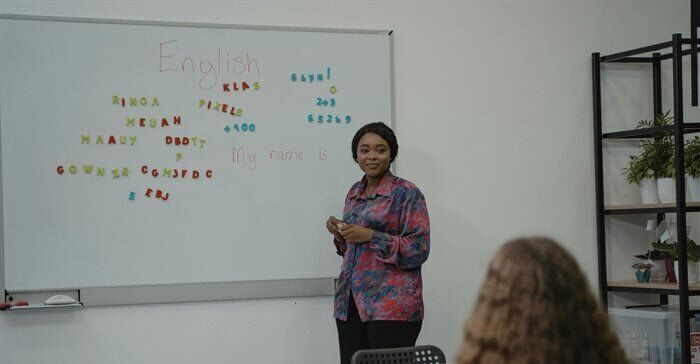Alarm Bells Over Burnout In Sa's Toughest Teaching Environments
Written by: BizCommunity Editor Save to Instapaper
This according to the Jake Gerwel Fellowship (JGF), a not-for profit organisation that offers professional induction and psychological support to Newly Qualified Teachers (NQT) who work predominantly in underprivileged schools.
“Teacher stress is a global issue, but while many countries have implemented structured support systems to help educators cope, this safety net is virtually non-existent in South Africa, leaving educators to sink or swim on their own. The result? Exhaustion, frustration, and alarming levels of burnout,” says Banele Lukhele, CEO at JGF.
“You get thrown into the deep end with no support. I love teaching—but when things go wrong, teachers are the first to be blamed and the last to be helped,” says one teacher at a Quintile 1 school in the Western Cape, echoing the reality faced by many educators across the country.
A 2023 study revealed that a staggering 70% of South African teachers experience high levels of stress, with burnout especially prevalent in poorer schools. In fact, 25% of teachers in South Africa report experiencing job-related stress a lot,’ - far higher than the Organisation for Economic Co-operation and Development (OECD) average of 18%.
When teachers are buckling under pressure, it’s not just their health that suffers; it directly impacts students’ learning outcomes. Overwhelmed teachers struggle to engage learners, classroom morale plummets, and the entire education ecosystem starts to collapse.
“For most educators, the transition from university to the classroom is tough, with teacher training programmes equipping educators with the theory but often falling short on preparing them for the psychological demands of the job,” says Lukhele. “The mental and emotional strain can be overwhelming—especially in lower quintile schools where support is scarce.”
Red flags, not red pens
All teachers, not just NQTs, report feelings of isolation and anxiety. Veteran educators in high-pressure, low-resource schools are also burning out, often becoming too overwhelmed to offer mentorship or embrace change.
This is where intervention is becoming critical.
“With the generous support of our funding partners and donors, we’ve been able to build a support model that encompasses both the hands-on mentoring and training that NQTs need, through pairing teachers with coaches, as well as providing psychological and counselling support through one of our partners, the Lyra Wellness platform,” says Lukhele.
JGF also facilitates Professional Learning Communities (PLCs), where teachers can collaborate and share best practices to manage the emotional toll of teaching. “Community is everything,” adds Lukhele.
“Teachers need to know they’re not alone. That sense of solidarity can be a lifeline.”
But the responsibility to improve mental health in teaching doesn’t lie with teachers alone. For meaningful change to happen, schools and policymakers must prioritise teacher well-being.
This includes reducing class sizes, hiring teaching assistants, ensuring safer working conditions, and allocating proper funding for induction and mental health support, which are essential for easing the transition into teaching.
The saying the quality of an educational system cannot exceed the quality of its teachers,’ has never been more relevant. We can’t expect quality learning in classrooms where teachers are barely coping.
As robotics and artificial intelligence become more integrated into the classroom, the pressure on teachers to keep up with new technologies will only add to their stress and workload.
“The quality of South Africa’s education system hinges on the well-being, support, and preparedness of its teachers. If we want our educators to thrive and our learners to succeed, we need to make structural changes.
“It’s time to treat teacher burnout for what it is: an urgent threat to our future—and a call to action we can no longer ignore,” concludes Lukhele.
We submit and automate press releases distribution for a range of clients. Our platform brings in automation to 5 social media platforms with engaging hashtags. Our new platform The Pulse, allows premium PR Agencies to have access to our newsletter subscribers.
Latest from
- Pretoria High Court Blocks B-BBEE Requirements For Air Service Licensing In Landmark Ruling
- Kenya Airways Updates Amsterdam Route With Paris Stop On Select Flights
- Presidency Reaffirms Adherence To Finance Laws In National Dialogue Budgeting
- President Updated On Preparations And Challenges For National Dialogue National Convention
- NRF Praised By Minister Nzimande For Advancing Transformation And Delivering High Impact Research
- 2025 Women In Science Awards Reveal Finalists Driving Change And Inspiring The Next Generation
- Entry Deadline Extended For Prism Awards Highlighting The Human Factor In Powerful Communications
- Rainbow Celebrates Women QA Leaders Committed To Nourishing The Nation Safely
- AI Poised To Revolutionise South Africa’s Approach To Workplace Injury And Earnings Assessments
- Khayelitsha Clinic Increases Sterilisation Drive To Reduce Pet Overpopulation And Disease
- South African Central Bank Assesses Minimal Impact From US Tariffs On Trade And Jobs
- Ammat Global Resources Drives Congo Oil Growth With Bold Targets At African Energy Week
- FAO Reports 1.6 Percent Monthly Increase In Food Price Index Led By Vegetable Oils
- Business Partners Highlights Urgent Need To Bridge Gender Finance Gap In Entrepreneurship
- Mustadafin Foundation Champions Young Single Mothers Through Empowerment Initiatives
The Pulse Latest Articles
- Reimagine Your Daily Ritual: Meet The Shower That Does More Than Just Cleanse (August 4, 2025)
- Xlink: An Avant-garde, Purpose-driven Fintelco Driving Digital And Payments Interoperability On The African Continent (August 1, 2025)
- Success Is Just The Beginning For This South African Brand (July 31, 2025)
- Embassies Business Fair And Conference 2025 To Fast-track Africa’s Global Economic Integration (July 31, 2025)
- There Is A Small Business Funding Readiness Crisis In South Africa (July 30, 2025)
